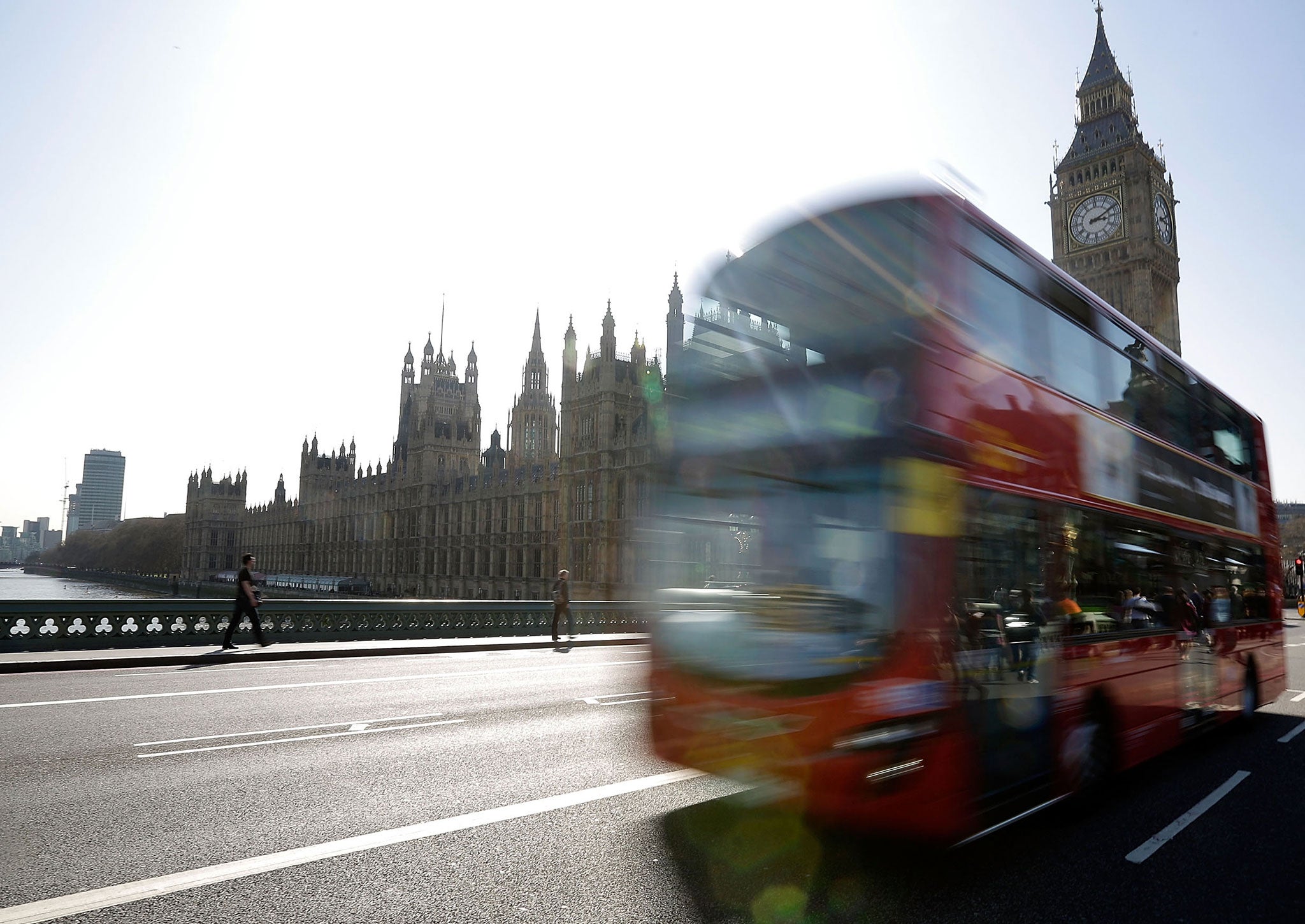Mayor of London Tory candidate Zac Goldsmith says there'll be 'no point' in having bus lanes in two to three years because we'll all be driving electric cars
He said that in the short-term he would allow electric private cars to use bus lanes as an incentive to allow people to buy such vehicles

Your support helps us to tell the story
From reproductive rights to climate change to Big Tech, The Independent is on the ground when the story is developing. Whether it's investigating the financials of Elon Musk's pro-Trump PAC or producing our latest documentary, 'The A Word', which shines a light on the American women fighting for reproductive rights, we know how important it is to parse out the facts from the messaging.
At such a critical moment in US history, we need reporters on the ground. Your donation allows us to keep sending journalists to speak to both sides of the story.
The Independent is trusted by Americans across the entire political spectrum. And unlike many other quality news outlets, we choose not to lock Americans out of our reporting and analysis with paywalls. We believe quality journalism should be available to everyone, paid for by those who can afford it.
Your support makes all the difference.The Conservative candidate for Mayor of London has said there will be no point in having bus lanes "within two to three years" because we will all be driving electric cars.
“I think that if I am right – and I am absolutely convinced I am, that we are going to see a massive shift in the type of cars people own, then within two or three years there will be no point having bus lanes because everybody is going to be driving these things around,” he told LBC radio.
Mr Goldsmith said that in the short-term he would allow electric private cars to use bus lanes as an incentive to allow people to buy such vehicles.
London has the largest bus priority network in the world and an expansion of the system under Ken Livingstone coincided with a sharp increase in bus ridership.
Passenger numbers have doubled since the mid-1980s and the capital’s 8,000 buses now take six million passengers every day on nearly 700 routes.
The lanes were first introduced in 1968 in order to give passengers priority and speed up public transport against private motor traffic.
Bus riders tend to be lower income than the users of all other public transport.
Mr Goldsmith did not expand on what a potential end to bus lanes would mean for those who rely on it as their main form of transport, inculding pensioners, who currently are entitled to free travel with a Freedom Pass.
Labour’s candidate Sadiq Khan, himself the son of a bus driver, tweeted: “I want to see more people switching to electric cars, but suggestions we’ll be able to scrap bus lanes soon aren't grounded in reality.”
Most of the lanes can be used by buses, taxis and people riding bikes. Minicabs are not allowed to use bus lanes.
The next London mayoral election is due in May 2016. Mr Goldsmith and Mr Khan will face Sian Berry from the Green Party, Caroline Pidgeon from the Liberal Democrats and Peter Whittle from Ukip.
Join our commenting forum
Join thought-provoking conversations, follow other Independent readers and see their replies
Comments